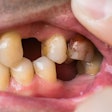
Many dental practices have had some type of loss or stunted growth related to the COVID-19 pandemic. From losing patient revenue and personnel to worrying about any type of recovery, dentists all over the U.S. have been worried about being able to continue practicing.
 Bruce Bryen, CPA, CVA.
Bruce Bryen, CPA, CVA.Now, you may be wondering how a retirement plan can assist the dental office recovery. When most dentists think of retirement plans, they think of 401(k)s, savings incentive match plan for employees (SIMPLE) individual retirement accounts (IRAs), Roth IRAs, and other types of plans commonly known as defined contribution plans. These qualified plans have statutory amounts allowed to be contributed to them, and other than the Roth, are fully deductible to the dental practice as long as they are paid when due.
The other type of retirement plan that most dentists and other professionals shy away from is known as a defined benefit plan. This is a retirement facility that also includes a payment to it from the dental practice. It is fully deductible as well.
The good news and bad news about a defined benefit plan is that it requires a contribution, whereas a defined contribution plan does not. Let's get into some details about the upside of deferred compensation plans, so you can understand why they are so useful during a downturn in the economy -- whether that's because of a coronavirus or any other cause.
The upside of a qualified employer-sponsored retirement plan
As the virus recedes and the economy begins its recovery, dentists and their office finances will come back. You may enjoy the usual practice or even see the betterment of the office cash flow consistent with the years prior to the current pandemic.
Quite a few people ignored their oral health while the pandemic was in full force. As the pandemic eases, people want to get out and get their health back. When the office revenue increases, it's time to consider using that increase in gross revenue and net profit to save as much as possible so that the losses from the virus can be overcome.
As an example, defined benefit plans can offer deductible contributions of up to $150,000 per year or more compared to defined contribution plans with statutory limits. The amount that can be deducted depends on a number of factors, but a mature practice that has been hindered by the virus can pay and deduct large amounts that far outweigh the defined contribution plan statutory limits.
Dentists can determine when the adoption of this type of employer-sponsored qualified retirement plan is designed and what amounts they can reasonably afford to employ. When the design is presented to the U.S. Internal Revenue Service (IRS) for approval, it must meet certain guidelines.
A dental certified public accountant (CPA) should have a large role in assisting with the description within the trust papers. This is because the dental CPA probably knows more about the financial strength of the dentist and his or her practice than anyone else.
Getting a win-win with a defined benefit plan
Because the dental CPA is the one who typically has the most knowledge of the dentist's overall financial position, he or she can explain how a dentist's personal wealth can be used if a practice can't afford the $150,000 estimated annual contribution.
Why is that an important point? Consider the fact that the dentist has personal assets that are reasonably substantial. These assets are earning income on which the dentist is paying personal federal and state income taxes. By transferring these assets to the dental practice and then using them to assist in making tax-deductible contributions to the retirement plan, the assets are now earning income that won't be taxed for quite some time.
Also, the income tax that is being deferred from the economic recovery of the practice will be substantial. That amount can be used to increase the value of the retirement plan -- almost all of which will be for the benefit of the dentist.
Think about what is occurring with this type of transaction. Assuming a 50% tax based on federal, state, and double Social Security tax for the dental practice owner, the sums of money involved with the use of the defined benefit plan will enable the dentist and office to quickly recover much of what was lost in 2020.
Consider the value of a dental CPA
A dental CPA is a tremendous resource to assist with the planning opportunities offered by a defined benefit plan. The CPA will understand how to assist with the design and submission of the defined benefit plan so that the IRS approval comes as quickly as possible.
The actuary who works with the dental CPA needs the input to be able to understand how the funds will be available to ensure that the dentist will be able to afford the contributions. Discrimination testing by the actuary and the dental CPA will ensure that the owner of the dental practice receives the benefits and the costs for the employees are reasonable.
Bruce Bryen, CPA, CVA, is a certified public accountant and a certified valuation analyst with more than 45 years of experience. Learn more about him and his services.
The comments and observations expressed herein do not necessarily reflect the opinions of DrBicuspid.com, nor should they be construed as an endorsement or admonishment of any particular idea, vendor, or organization.



















